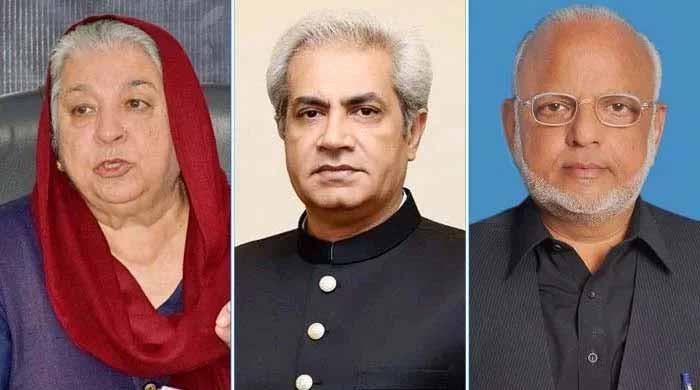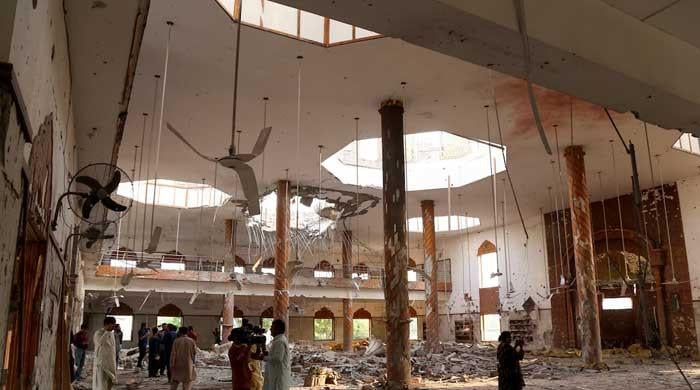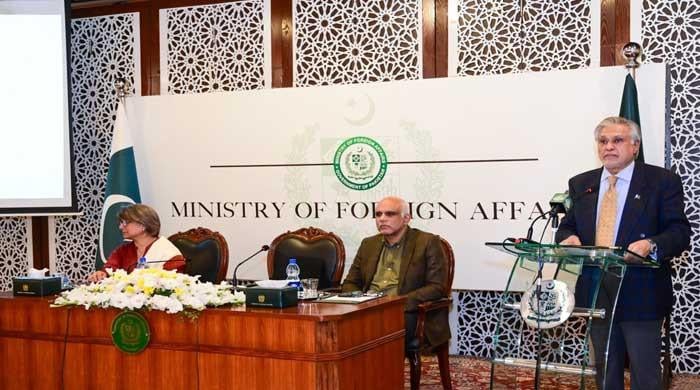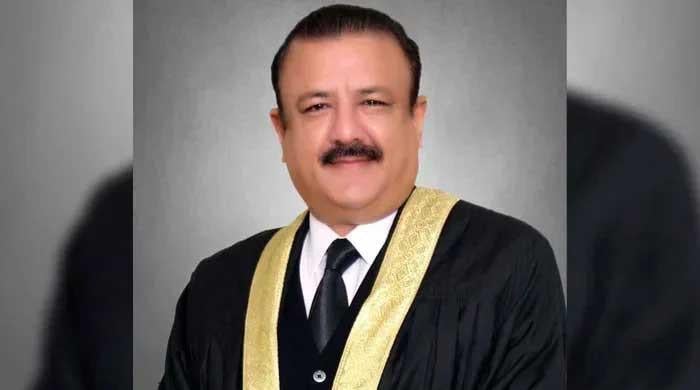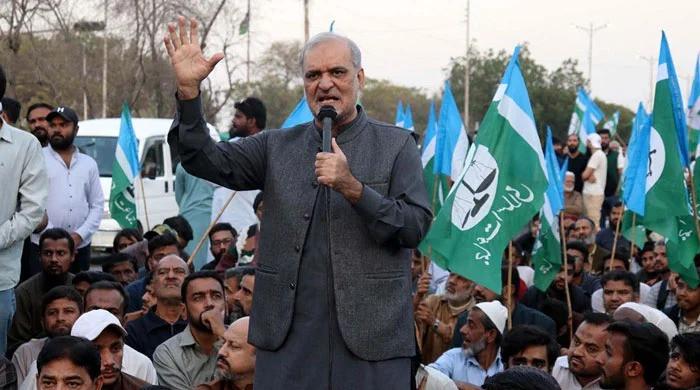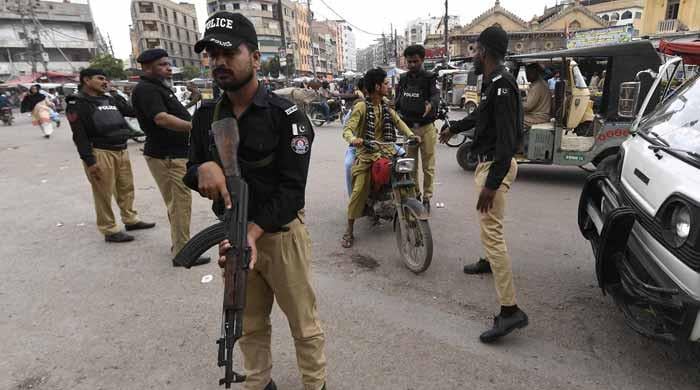The 'Junaid' I Knew
I clearly remember when I first met Junaid Jamshed, the voice behind Vital Signs, the music band that paved way for youngsters to take up music seriously as a profession. It was in March 1997,...
December 07, 2016
I clearly remember when I first met Junaid Jamshed, the voice behind Vital Signs, the music band that paved way for youngsters to take up music seriously as a profession. It was in March 1997, the first Sunday in the life of a 19- year-old, who had been resting on Fridays, all his life.
Junaid was there, like me, watching the semi final of a domestic ODI tournament. The match was being played between Pakistan International Airlines and United Bank Limited at the Defence Cricket Stadium, which had hosted its solitary Test match way back in 1993.
Wasim Akram was playing for PIA, while Waqar Younis was representing UBL. Saqlain Mushtaq was to fly for airlines, while Mushtaq Ahmed was there for the bank. Fast bowling sensation Muhammad Zahid was the one everyone was after. There were many test cricketers namely Moin Khan, Basit Ali, Tauseef Ahmed, Saleem Elahi, Asif Mujtaba and Shoaib Muhammad, who we were constantly harassing for autographs. Even Zaheer Abbas and Mansoor Akhtar were there, Zaheer as manager, Mansoor as player.
This time, the teams were full of international stars and for students, like me, it was ‘the’ moment. In days when mobile was a rarity and carrying a ‘camera’ was a luxury, presence of so many cricketers was just captured only on an autograph book.
Junaid Jamshed, who had just turned solo, was there with Salman Ahmed, of then Junoon fame. Both were roaming around the stadium, disturbing the match. I caught him when he was sitting in an empty pavilion with former Test Cricketer Sikandar Bakht, who was then associated with UBL.
He tried to dodge me when I asked for an autograph, but for someone who has wasted so much time and money on his songs, NO was not an answer. This summed up our first meeting.
I went on with my studies and started contributing for newspapers, as a part timer. Photography was another ‘hobby’ of mine and my camera did accompany me several times to my visits to stadium, but Junaid Jamshed was never there.
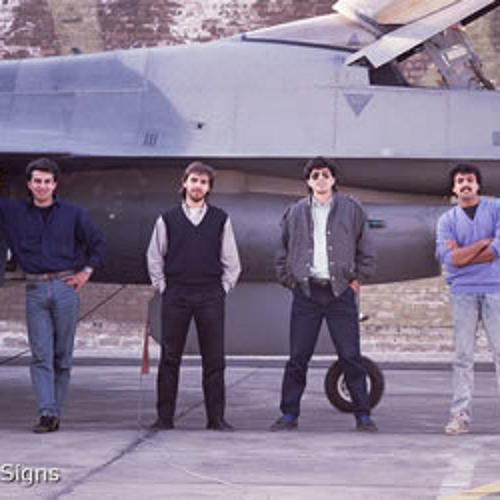
Private channels were still couple of years away. It was somewhere in 1999, when as a photographer, I covered his concert in Karachi.
It was one fine night on February 1989, when we first publicly saw ‘’aisi zameen aur aasman’’ on PTV. Four boys, in their 20s, were dancing to pop-songs. I had the show Music 89, which was hosted by legendary Nazia and Zohaib Hasan, recorded on my VCR, as I had to go to bed for school, next day. Those who stayed up late were singing Dil Dil Pakistan, so we were late in registering the new national anthem.
Junaid Jamshed is an important part of the life of people like me who have grown up in the 80s. His songs, solo or combined, are anthems for an entire nation. Be it fast numbers like Goray rang ka zamana, jub se hum hue jawan, mera dil nahi available or slow numbers like tum door thay tu kia hua, yeh sham phir nahi aayegi and Aitebaar.. he was the one who grabbed our attention from day one.
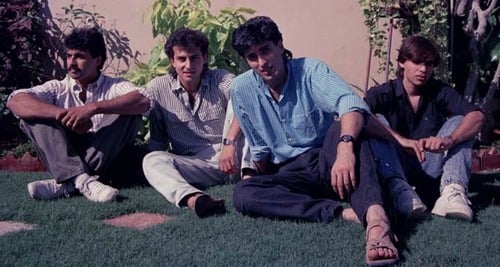
For an entire generation, the concept of music videos was synonymous to Junaid Jamshed. ‘Geetar 93’ was the only source of music videos we had in those days. JJ was the Michael Jackson for us, as he revolutionized music in Pakistan. An engineering graduate himself, he rejected the notion that boys from educated background cannot prosper in the field of music. He can be considered the pioneer of ‘band music’ in Pakistan. His voice was the reason why people started buying audio cassettes. Vital Signs or not, his songs are still a hit and many listeners never accepted him in any other role.
His songs ‘Maula’, Hum hain Pakistani hum tu jeetaingay’, ‘Dil maange dil maange’ and ’yehi zameen’ gave new meaning to the word Patriotism.
I attended several of his concerts and had couple of meetings with him. The most memorable one was when Private Television arrived in Pakistan. It was in the garden of Indus TV when he started drifting towards religion. He had a copy of Holy Quran in his hand, but was comfortably seated for a shoot. I was returning from an assignment and bumped into him. I talked about his solo albums and music, but he mostly spoke about me and my projects. The man who was ruling the hearts of millions was so down-to- earth, that sometimes it would become difficult to differentiate between the man and the legend.
JJ eventually left music and went on to become a preacher. I got into TV production and befriended Sikandar Bakht, who happened to join Indus TV as an analyst. The same Sikku Bhai whose autograph I took, at DHA stadium with JJ.
Fast Forward….. 2016…
News channels are ruling the airwaves. News has become an essential part of the life of an average Pakistani. One may survive without water, but not without News. Sikandar Bakht and I are again working for the same channel, and I usually speak to him for views on my blogs. At the time when JJ was aboard the last flight of his life, I was talking to ‘Sikku’ Bhai about the 1979 Perth Test when he was wrongly dismissed by Australian Alan Hurst. Suddenly I got the news of a PIA flight gone missing. Couple of minutes later, the news of "religious scholar Junaid Jamshed being on it’’, was being flashed.
For News channels, it was the death of someone who was a famous TV personality, hosted religious shows and owned a chain of elegant Kurtas.
Times do change, but for me, and for thousands of others, the singer I got the autograph from 2 decades back, died in that crash.




